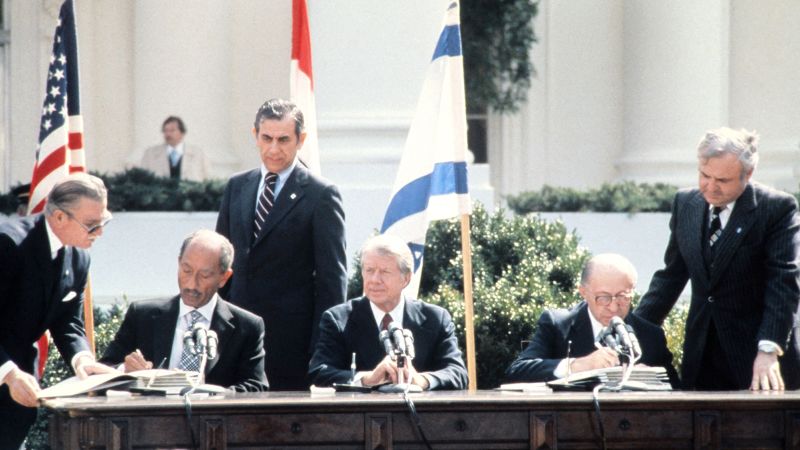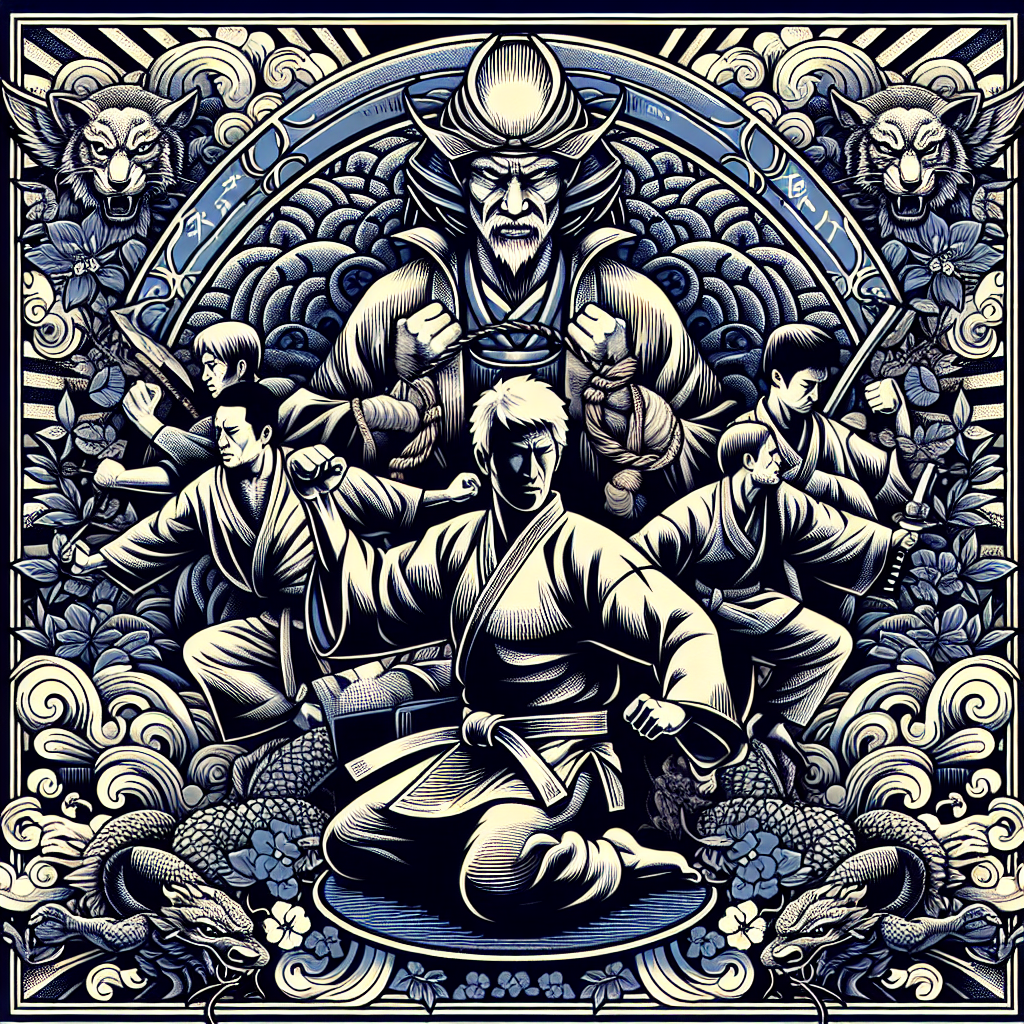CNN
—
Early in his presidency, in May 1977, then-President Jimmy Carter gave a commencement speech at the University of Notre Dame that outlined a new approach to America’s role in the world: Carter said human rights should be a “fundamental tenet of our foreign policy.”
This was a sharp break from the foreign policy practiced by Carter’s predecessor, President Richard Nixon, who, during the Vietnam War, stepped up the secret American bombings of Vietnam’s neighbors Cambodia and Laos, causing untold misery in those countries. Nixon’s secretary of state, Henry Kissinger, successfully pushed to overthrow the democratically elected socialist government of Salvador Allende in Chile in 1973. Three years later, Kissinger also secretly gave a green light to the military junta in Argentina to carry out what’s known as the “Dirty War” to kill between 10,000 to 30,000 of its political opponents.
Carter wanted to end such American support for dictators and to emphasize US support for human rights, while also trying to bring peace to the Middle East. His record largely reflects this effort – but the Iran hostage crisis has tended to obscure that Carter was otherwise a successful commander-in-chief on the foreign policy front.
Within weeks of taking office, Carter wrote a letter of support to Andrei Sakharov, the leading Soviet dissident. While this angered the Soviet regime, it helped to sustain the dissident movement in the Soviet Union, knowing that they had the US president firmly in their corner.
Carter’s approach to American foreign policy based on rights and justice also informed his decision to return the Panama Canal to the Panamanians. More than half a century earlier, President Teddy Roosevelt had supported Panama’s secession from Colombia, which resulted in the Americans building and owning the canal that traversed Panama, which enabled ships to avoid traveling an additional several thousand miles around Cape Horn at the bottom of South America.
But by the time Carter assumed office, the Panama Canal had become a symbol of US colonialism; Carter was determined to fix what he saw as a historical wrong, even if this was not an especially popular move politically in the US. Polling showed that half of Americans didn’t want to give up the canal, and an up-and-coming Republican politician named Ronald Reagan said of the plan: “I’m going to talk as long and as loud as I can against it.”
But in the end, Carter prevailed, getting the more-than-two-thirds vote in the US Senate necessary to ratify the Panama Canal treaties.
In recent weeks, President-elect Donald Trump has publicly mused about getting the Panama Canal back, but since the US Senate has ratified the Panama Canal treaties and the Panamanian government has said it has no interest in handing the canal back to the US, the possibility of this happening seems quite remote.
Peace between Israel and Egypt
Another success for Carter was the Camp David Accords between Israel and Egypt, which had fought three major wars against each other. Israel’s Prime Minister, Menachem Begin, and Egypt’s President, Anwar Sadat, were bitter enemies when Carter brought them together at the US presidential retreat at Camp David in Maryland for 13 days of intensive peace talks in September 1978.
At Camp David, Carter cajoled the Israeli and Egyptian leaders into continuing to negotiate even when the talks broke down, and he brought to bear his own encyclopedic knowledge of the issues in the Middle East.
James Fallows was Carter’s chief speechwriter and stayed at Camp David during the negotiations. Fallows says the peace agreement simply wouldn’t have happened without Carter, who brought considerable focus to the details of the talks. Carter sat down with Begin and Sadat to examine maps of the Sinai region, which lies between Egypt and Israel, and Carter would be “drawing lines and saying, ‘What about this? And does the road go here? And what about the water supply?’ So, he was able to out-detail anybody,” Fallows told me in an interview for the Audible podcast “In the Room.”
The resulting peace agreement endures today, almost half a century later.
It was Nixon who first traveled to China to begin the normalization process between the communist regime and the United States, but it was Carter who formally recognized China and established diplomatic relations between the two countries, which set the foundations for the largest trade partnership in history.
And despite his peacenik image, it was Carter who started arming the Afghan mujahideen fighting the Soviets who invaded Afghanistan in December 1979.
And yet what defined Carter’s record as commander-in-chief for most Americans was the Iran hostage crisis when Islamist revolutionaries seized the American embassy in Tehran along with more than 50 Americans.
What precipitated the embassy takeover was the US providing refuge to the Shah of Iran, who the Iranian revolutionaries hated. Ironically, Carter had initially fiercely opposed letting the Shah into the US, but he was persuaded by Kissinger and other supporters of the Shah that the Iranian monarch was close to death from cancer and urgently needed medical treatment that only the US could provide. (The Shah’s medical prognosis was, in fact, better than was presented at the time).
Carter authorized a rescue operation in April 1980 to free the American hostages in Tehran. Operation Eagle Claw, sometimes called Desert One, was doomed almost as soon as it started. Several of the rescue helicopters encountered a fierce sandstorm, and one of them collided with an American transport plane during a refueling in the Iranian desert, killing eight American servicemen.
A Pentagon investigation found many problems with Operation Eagle Claw: The Army, Air Force, Navy, and Marines all wanted to play a role in this important operation, even though they had never worked together before on this kind of mission. An overemphasis on operational security prevented the services from sharing critical information, and there was no full-scale plan rehearsal.
Something needed to be fixed. That fix was the creation in 1980 of the Joint Special Operations Command, which 31 years later would oversee the operation that killed Osama bin Laden in Abbottabad, Pakistan. However, the long-running hostage crisis that went on for 444 days and the failed rescue operation in Iran helped ensure that Carter was a one-term president.
At a press conference in 2015, Carter was asked what he wished he might have done differently when he was president. Carter replied, “I wish I’d sent one more helicopter to get the hostages, and we would have rescued them, and I would have been reelected.”
That seems like wishful thinking. The challenge of rescuing 52 American hostages held by fanatical revolutionaries inside the US embassy in downtown Tehran, a city of many millions of people, and then successfully getting them out of the country would have been formidable.
That said, Carter’s legacy as commander-in-chief cannot be judged solely by the US hostages held in Iran and the failed rescue effort.
Carter brokered a lasting peace between Egypt and Israel, opened US diplomatic relations with China, ended the colonial irritant of US control of the Panama Canal, and foregrounded human rights in American policy by, for instance, supporting Soviet dissidents while also taking a hardline when the Soviets invaded Afghanistan in 1979.
All in all, that’s a successful record for any commander-in-chief.
One of Carter’s most significant achievements was brokering the Camp David Accords in 1978, which led to a peace treaty between Egypt and Israel. This historic agreement not only ended decades of hostility between the two nations but also established a framework for future negotiations in the region. Carter’s personal involvement in the negotiations and his willingness to take risks in pursuit of peace were instrumental in bringing about this breakthrough.
Carter also played a key role in the Panama Canal Treaty of 1977, which transferred control of the canal from the United States to Panama. This move helped to improve relations between the two countries and demonstrated Carter’s commitment to promoting diplomacy and cooperation on the world stage.
Additionally, Carter’s human rights policy was a defining aspect of his foreign policy approach. He made human rights a central focus of his administration and used America’s influence to advocate for the protection of basic freedoms and liberties around the world. Carter’s emphasis on human rights set a precedent for future presidents and helped to shape the way the United States engages with other countries on these issues.
Despite facing criticism for his handling of the Iranian Revolution and the hostage crisis that followed, Carter’s overall foreign policy record is more nuanced and successful than many realize. His commitment to diplomacy, peace, and human rights left a lasting impact on global affairs and helped to shape America’s role in the world for years to come.
In conclusion, Jimmy Carter’s foreign policy legacy is far more complex and successful than he is often given credit for. His achievements in brokering peace agreements, promoting human rights, and fostering international cooperation have had a lasting impact on global affairs and deserve recognition as part of his presidential legacy.
Tags:
Jimmy Carter, foreign policy, legacy, analysis, success, complex, presidential history, diplomacy, international relations, United States, humanitarian efforts, peace agreements.
#Analysis #Jimmy #Carters #foreign #policy #legacy #complex #successful #credit









